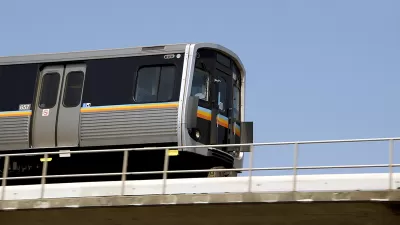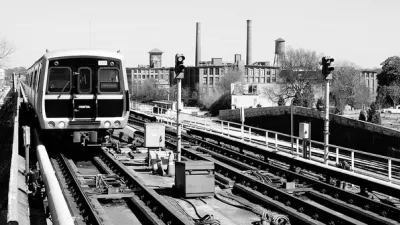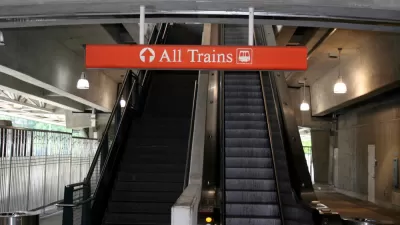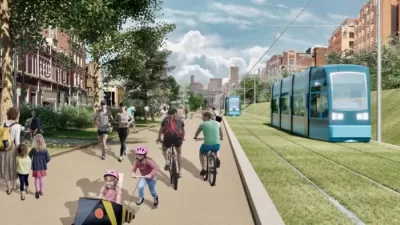After a public engagement process and a political process played out in 2018, MARTA and the city of Atlanta can now focus on what gets built, when, according to the $2.7 billion More MARTA capital investment plan.

"The Metropolitan Atlanta Rapid Transit Authority (MARTA) Board of Directors has unanimously approved the sequencing of the transit projects in the More MARTA Atlanta program," according to a press release posted by the SaportaReport.
The press release describes the More MARTA plan as the region's largest investment in public transit since MARTA's inception.
"The program of projects introduces new modes to the MARTA system, with 14 new miles of bus rapid transit (BRT) representing 22% of the expansion miles; 22 miles of arterial rapid transit (ART) representing 34% of the expansion; and 29 new miles of light rail service representing 44% of the new service. With these new modes and a significant expansion of light rail, MARTA is building a balanced, smart transit system to serve current customers and attract new riders in Atlanta and across the region."
The press release also says the project delivery sequencing represents a game changing approach to project delivery, with a commitment to public-private partnerships designed to reduce delivery times and increase revenue sources.
The project's include in the More MARTA plan were the subject of debate in fall 2018. The board's decision sorts out what gets built and when, sorting out projects into three categories: operational by 2025, under construction by 2025, and planning and design phase by 2025.
FULL STORY: More MARTA Atlanta Program Paves The Way For Increased Connectivity And Economic Development

Planetizen Federal Action Tracker
A weekly monitor of how Trump’s orders and actions are impacting planners and planning in America.

San Francisco's School District Spent $105M To Build Affordable Housing for Teachers — And That's Just the Beginning
SFUSD joins a growing list of school districts using their land holdings to address housing affordability challenges faced by their own employees.

The Tiny, Adorable $7,000 Car Turning Japan Onto EVs
The single seat Mibot charges from a regular plug as quickly as an iPad, and is about half the price of an average EV.

Seattle's Plan for Adopting Driverless Cars
Equity, safety, accessibility and affordability are front of mind as the city prepares for robotaxis and other autonomous vehicles.

As Trump Phases Out FEMA, Is It Time to Flee the Floodplains?
With less federal funding available for disaster relief efforts, the need to relocate at-risk communities is more urgent than ever.

With Protected Lanes, 460% More People Commute by Bike
For those needing more ammo, more data proving what we already knew is here.
Urban Design for Planners 1: Software Tools
This six-course series explores essential urban design concepts using open source software and equips planners with the tools they need to participate fully in the urban design process.
Planning for Universal Design
Learn the tools for implementing Universal Design in planning regulations.
Smith Gee Studio
City of Charlotte
City of Camden Redevelopment Agency
City of Astoria
Transportation Research & Education Center (TREC) at Portland State University
US High Speed Rail Association
City of Camden Redevelopment Agency
Municipality of Princeton (NJ)





























